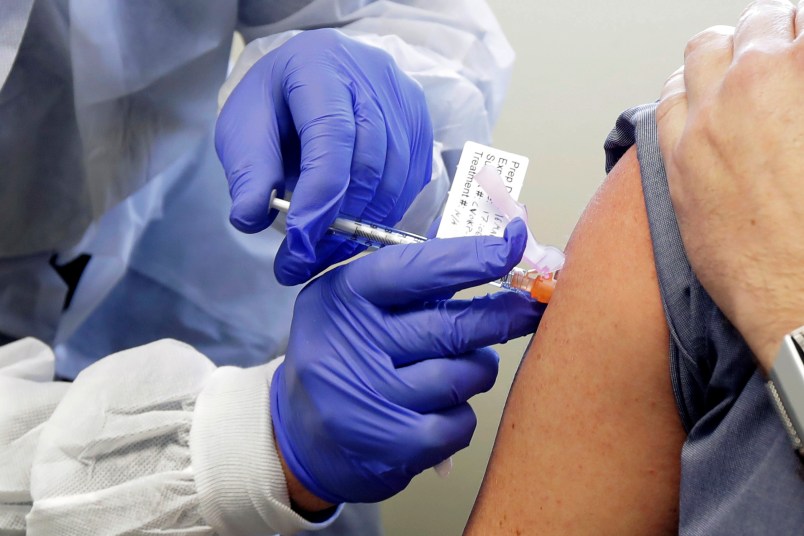A critical care doctor in Houston has said that more than half of the nurses in his unit won’t get the coronavirus vaccine for political reasons, even as medical facilities bend under the pressure of record-high hospitalizations as coronavirus cases surge across the country.
Dr. Joseph Varon, chief of the United Memorial Medical Center’s critical care unit, learned that staff at his hospital would be among the first in line to be offered Pfizer’s coronavirus vaccine, which received emergency authorization from the Food and Drug Administration last week, but many won’t be stepping up to get it.
“I had a friendly argument with more than 50 percent of my nurses in my unit telling me that they would not get the vaccine,” Varon told NPR in an interview published Wednesday.
He said that while some staff were elated about news of early access to the vaccine, he has concerns about colleagues who have said they have no plans to get vaccinated even though they are among the groups most at risk for contracting the virus as they treat COVID-19 patients.
“At the end of the day, like I have said before, coronavirus has become a political toy,” Varon told NPR. “Most of the reasons why most of my people don’t want to get the vaccine are politically motivated.”
The on-the-ground comments from a health care worker come as President Donald Trump on Sunday said he would not rush to get the COVID-19 vaccine in spite of encouragement from Dr. Anthony Fauci, director of the National Institute for Allergy and Infectious Diseases, who has been pointed in his recommendation that both Trump and President-elect Joe Biden get early doses of the vaccine to protect against coronavirus.
The vaccination of the political figures would also likely help to rebuild public confidence in a vaccine that had been politicized for months, especially by Trump himself, ahead of November’s general election.
Fauci, who has for months pledged that he would get a vaccine to as soon as one becomes available to him to attest to its safety, has also expressed concerns that people will decline to vaccinate against coronavirus, making it more difficult to combat a pandemic that has now killed more than 300,000 people in the United States.
“My primary biggest fear is that a substantial proportion of the people will be hesitant to get vaccinated,” Fauci told the Daily Beast in a recent interview.
Fauci’s warning comes as the Trump campaign scrambles to secure more doses of Pfizer’s vaccine, after rejecting earlier offers. The nation so far has only managed to lock in enough doses of two COVID-19 shots to vaccinate just under half of the U.S. population.
Public health officials have estimated that 70 to 75 percent of the population will need to be vaccinated before people can start moving about freely again.
The arrival of the first doses of the COVID-19 vaccine heralds the first blush of hope for the nation to emerge from a pandemic which has crippled much of public life.
But if Varon’s unit of health-care workers are any indication it will likely be some time before enough Americans get vaccinated to build up enough immunity in the population for some return to normalcy.
Varon told NPR that he anticipated it would “be months, and more months, and probably even years before everybody gets vaccinated.”



